Six days and 16 matches into the 2010 World Cup, the first word that comes up when discussing strikers and goals is not Messi or Ronaldo, nor Rooney or Drogba but Jabulani!
Who would’ve thought? Six days and 16 matches into the 2010 World Cup, the only buzz so far has come from the constant drone of tens of thousands of Vuvuzelas and the first word that comes up when discussing strikers and goals is not Messi or Ronaldo, nor Rooney or Drogba but Jabulani!
The first World Cup held in Africa was always going to be unique but the only striking feature after each team has completed their opening assignments has been the surprising lack of goals.
Wasn’t that supposed to happen in the knock-outs, when teams got increasingly cagey? The group stages of the Word Cup finals have traditionally proved to be goal-feasts, as the big guns set about putting down the markers with old-fashioned, pedal-on-metal drubbings against the pretenders.
In 2002, 47 goals came in the first 16 games at an average close to three per match - the biggest win being Germany’s 8-0 mauling of Saudi Arabia. Four years later, the back of the net was found 39 times as Spain wrapped up the opening round with a thumping 4-0 win over Ukraine.
In 2010, the first round has seen 25 strikes, the goals-per-game average at a ridiculously low 1.5. The excuses emanating from various camps have revolved around the two most derided words of the week: Vuvuzela and Jabulani. If you don’t know what the Vuvuzela sounds like, watch any game or, alternately, shove your head into a beehive. Players say that the loud (measured at 127 decibels), monotonous din makes it impossible for them to hear their teammates.
The ball provided by Adidas has proved to be a concern as well, with every second cross being overhit and shots flying high over the crossbar. No goals have been scored directly from free-kicks which, with the number of specialists around, does point to the fact that teams are struggling to come to terms with either the Jabulani or the high altitude at which games are being played (the explanation of the second theory is that as air pressure decreases, the ball carries a lot more).
Can that be all though?
The defensive eight
Over the years, the 4-4-2 has been the most favoured formation for top teams, the two target men up-front keeping opposition goalkeepers busy. Increasingly over the last four years, the 4-5-1 has come into vogue - even teams that play two out-and-out strikers tend to play one up-front and one as a linkman just in front of the midfield. The 4-5-1, when used as an attacking tool, allows for the two wide midfielders to join in rapid counterattacks, as Jose Mourinho proved with both Chelsea and Inter Milan. But smaller sides have effectively used it to stifle more attacking teams — Greece’s ‘defensive eight’ won them the Euro in 2004. And on Tuesday night, the unfancied Switzerland gave a great example of what defensive bloody-mindedness could do even against a team overflowing with natural talent as Spain.
The schedule
Another factor resulting in the slew of dreaded 0-0s and 1-0s could be the way the matches have been scheduled. As at all Word Cups, the eight groups generally include two strong teams and two relatively weaker sides.
Usually, the clash between the groups bigger sides are played right at the end and tend to decide where the teams finish in the group. This time though, a look through the fixtures that have passed, show that in several groups, the biggest clashes have already been done with — France drew against Uruguay and now play South Africa and Mexico; England couldn’t beat USA but should do better against Algeria and Slovenia; defending champions Italy were held by an impressive Paraguay but will New Zealand or Slovakia prove to be a threat?
The 2-1 result in Brazil vs North Korea was the only real surprise in that sense, considering it was the biggest mismatch in World Cup history as far as rankings go: when No.1 takes on No 104, you’re right to expect more than three goals.
The coming week should, hopefully, fix all that: Among other clashes, England play Algeria, Germany take on Serbia, while Spain will have a chance to redeem themselves against Honduras.
And if the ball is still only trickling into the net, there’s always the buzz of the Vuvuzelas to rant about.
This copy was written after the completion of first round.
![submenu-img]() This film made Dharmendra star, was originally offered to Sunil Dutt, actor suffered near-death injury, movie earned...
This film made Dharmendra star, was originally offered to Sunil Dutt, actor suffered near-death injury, movie earned...![submenu-img]() Sumatra Slim Belly Tonic Scam (Tested For 90 Days) Does This Blue Tonic Supplement Work For Weight Loss?
Sumatra Slim Belly Tonic Scam (Tested For 90 Days) Does This Blue Tonic Supplement Work For Weight Loss?![submenu-img]() Sugar Defender Scam (60 Days Of Testing) What Users Are Saying About This Blood Sugar Support Formula
Sugar Defender Scam (60 Days Of Testing) What Users Are Saying About This Blood Sugar Support Formula![submenu-img]() FitSpresso Scam (I've Used It For 180 Days) Are These Weight Loss Pills Effective?
FitSpresso Scam (I've Used It For 180 Days) Are These Weight Loss Pills Effective?![submenu-img]() Understanding Legal Entity Identifiers: The Advantages and Benefits
Understanding Legal Entity Identifiers: The Advantages and Benefits![submenu-img]() Meet man who almost failed in class 12, IIT alumnus, who quit high-paying job at Infosys for UPSC exam, secured AIR...
Meet man who almost failed in class 12, IIT alumnus, who quit high-paying job at Infosys for UPSC exam, secured AIR...![submenu-img]() Meghalaya Board 10th, 12th Result 2024: MBOSE SSLC, HSSLC Arts results to be declared on this date
Meghalaya Board 10th, 12th Result 2024: MBOSE SSLC, HSSLC Arts results to be declared on this date![submenu-img]() Campus placement: Over 7700 students of IIT 2024 batch yet to get jobs, finds RTI
Campus placement: Over 7700 students of IIT 2024 batch yet to get jobs, finds RTI![submenu-img]() IIT-JEE topper joins IIT Bombay with AIR 1, skips placement drive, now working as a...
IIT-JEE topper joins IIT Bombay with AIR 1, skips placement drive, now working as a...![submenu-img]() IIT graduate builds Rs 1057990000000 company, leaves to get a job, now working as a….
IIT graduate builds Rs 1057990000000 company, leaves to get a job, now working as a….![submenu-img]() DNA Verified: Is CAA an anti-Muslim law? Centre terms news report as 'misleading'
DNA Verified: Is CAA an anti-Muslim law? Centre terms news report as 'misleading'![submenu-img]() DNA Verified: Lok Sabha Elections 2024 to be held on April 19? Know truth behind viral message
DNA Verified: Lok Sabha Elections 2024 to be held on April 19? Know truth behind viral message![submenu-img]() DNA Verified: Modi govt giving students free laptops under 'One Student One Laptop' scheme? Know truth here
DNA Verified: Modi govt giving students free laptops under 'One Student One Laptop' scheme? Know truth here![submenu-img]() DNA Verified: Shah Rukh Khan denies reports of his role in release of India's naval officers from Qatar
DNA Verified: Shah Rukh Khan denies reports of his role in release of India's naval officers from Qatar![submenu-img]() DNA Verified: Is govt providing Rs 1.6 lakh benefit to girls under PM Ladli Laxmi Yojana? Know truth
DNA Verified: Is govt providing Rs 1.6 lakh benefit to girls under PM Ladli Laxmi Yojana? Know truth![submenu-img]() AI models set goals for pool parties in sizzling bikinis this summer
AI models set goals for pool parties in sizzling bikinis this summer![submenu-img]() In pics: Aditi Rao Hydari being 'pocket full of sunshine' at Cannes in floral dress, fans call her 'born aesthetic'
In pics: Aditi Rao Hydari being 'pocket full of sunshine' at Cannes in floral dress, fans call her 'born aesthetic'![submenu-img]() Jacqueliene Fernandez is all smiles in white shimmery bodycon at Cannes 2024, fans call her 'real Barbie'
Jacqueliene Fernandez is all smiles in white shimmery bodycon at Cannes 2024, fans call her 'real Barbie'![submenu-img]() AI models show bikini style for perfect beach holiday this summer
AI models show bikini style for perfect beach holiday this summer![submenu-img]() Laapataa Ladies actress Chhaya Kadam ditches designer clothes, wears late mother's saree, nose ring on Cannes red carpet
Laapataa Ladies actress Chhaya Kadam ditches designer clothes, wears late mother's saree, nose ring on Cannes red carpet![submenu-img]() DNA Explainer: Why was Iranian president Ebrahim Raisi, killed in helicopter crash, regarded as ‘Butcher of Tehran’?
DNA Explainer: Why was Iranian president Ebrahim Raisi, killed in helicopter crash, regarded as ‘Butcher of Tehran’?![submenu-img]() DNA Explainer: Why did deceased Iranian President Ebrahim Raisi wear black turban?
DNA Explainer: Why did deceased Iranian President Ebrahim Raisi wear black turban?![submenu-img]() Iran President Ebrahim Raisi's death: Will it impact gold, oil prices and stock markets?
Iran President Ebrahim Raisi's death: Will it impact gold, oil prices and stock markets?![submenu-img]() Haryana Political Crisis: Will 3 independent MLAs support withdrawal impact the present Nayab Saini led-BJP government?
Haryana Political Crisis: Will 3 independent MLAs support withdrawal impact the present Nayab Saini led-BJP government?![submenu-img]() DNA Explainer: Why Harvey Weinstein's rape conviction was overturned, will beleaguered Hollywood mogul get out of jail?
DNA Explainer: Why Harvey Weinstein's rape conviction was overturned, will beleaguered Hollywood mogul get out of jail?![submenu-img]() This film made Dharmendra star, was originally offered to Sunil Dutt, actor suffered near-death injury, movie earned...
This film made Dharmendra star, was originally offered to Sunil Dutt, actor suffered near-death injury, movie earned...![submenu-img]() Sanjay Leela Bhansali breaks silence on Sharmin Segal's performance in Heeramandi: She kept saying, 'Mama, I will...'
Sanjay Leela Bhansali breaks silence on Sharmin Segal's performance in Heeramandi: She kept saying, 'Mama, I will...'![submenu-img]() 'To my surprise...': Neena Gupta says she is amazed as everyone from different backgrounds loves Panchayat
'To my surprise...': Neena Gupta says she is amazed as everyone from different backgrounds loves Panchayat![submenu-img]() Worst Indian film ever ended actor's career, saw court cases; it's not Jaani Dushman, Adipurush, RGV Ki Aag, Himmatwala
Worst Indian film ever ended actor's career, saw court cases; it's not Jaani Dushman, Adipurush, RGV Ki Aag, Himmatwala![submenu-img]() Meet director, was thrown out of film for advising Salman Khan, gave flops; later made 6 actors stars with just one film
Meet director, was thrown out of film for advising Salman Khan, gave flops; later made 6 actors stars with just one film![submenu-img]() Old video resurfaces: Hippo attempts zoo breakout, gets slapped by security guard
Old video resurfaces: Hippo attempts zoo breakout, gets slapped by security guard![submenu-img]() Mysterious pillars of light in sky spark alien speculation, know what they are
Mysterious pillars of light in sky spark alien speculation, know what they are![submenu-img]() Shaadi.com's innovative dowry calculator garners social media praise, here's why
Shaadi.com's innovative dowry calculator garners social media praise, here's why![submenu-img]() Viral video: Woman gracefully grooves to Aditi Rao Hydari’s Saiyaan Hatto Jaao from Heeramandi, watch
Viral video: Woman gracefully grooves to Aditi Rao Hydari’s Saiyaan Hatto Jaao from Heeramandi, watch![submenu-img]() Know about Travancore royal family that controls treasure of the wealthiest temple on Earth
Know about Travancore royal family that controls treasure of the wealthiest temple on Earth
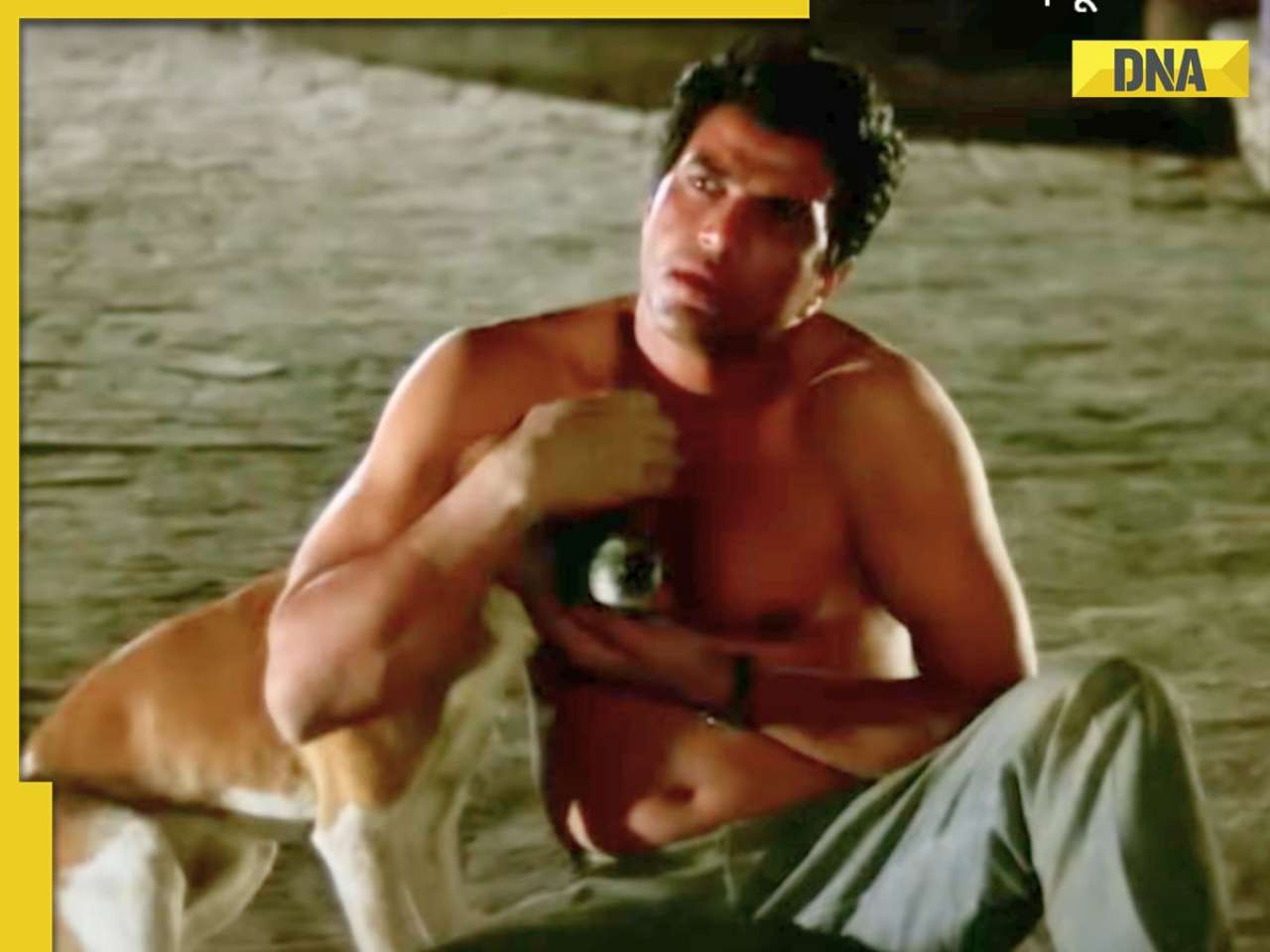









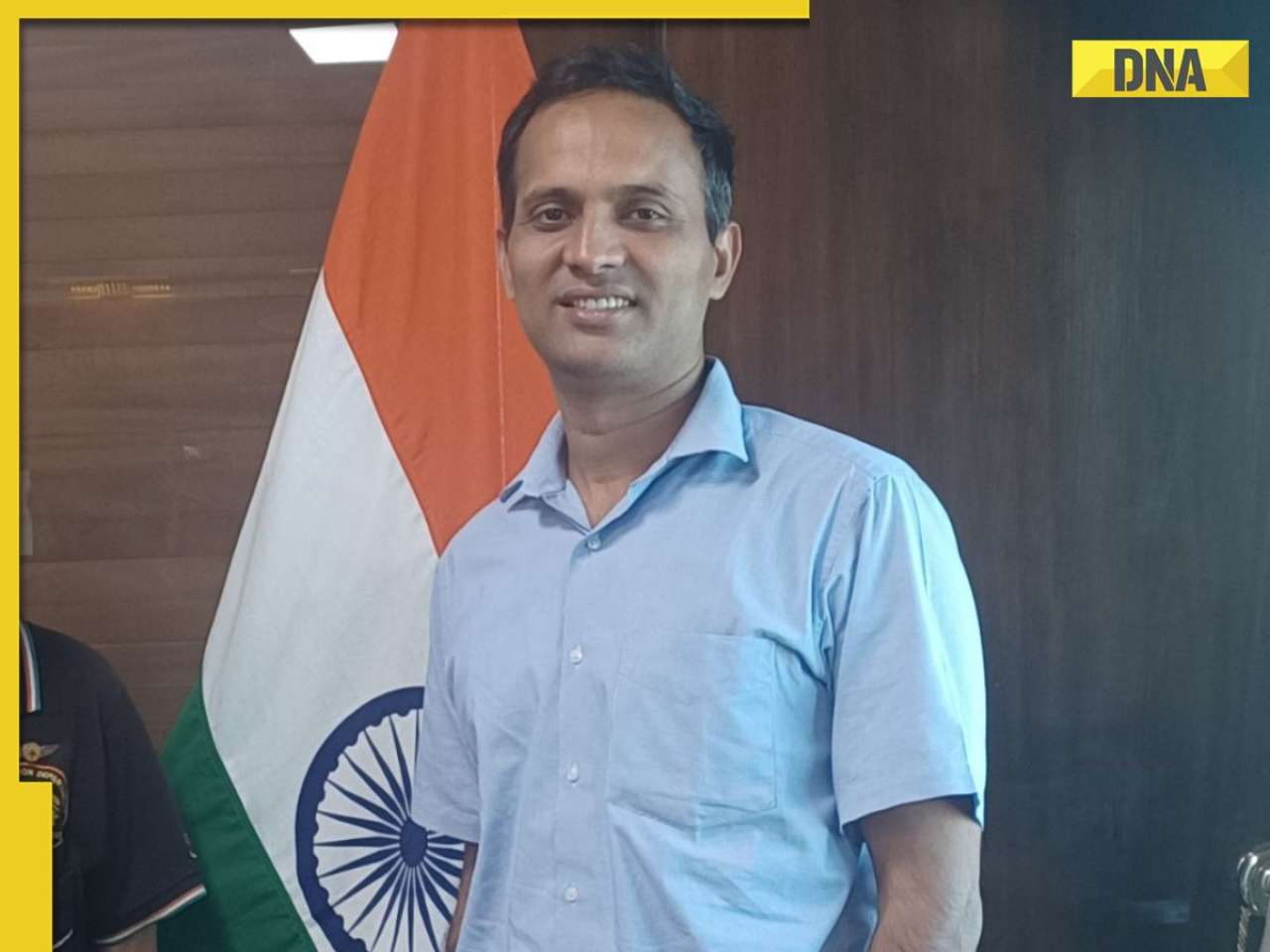
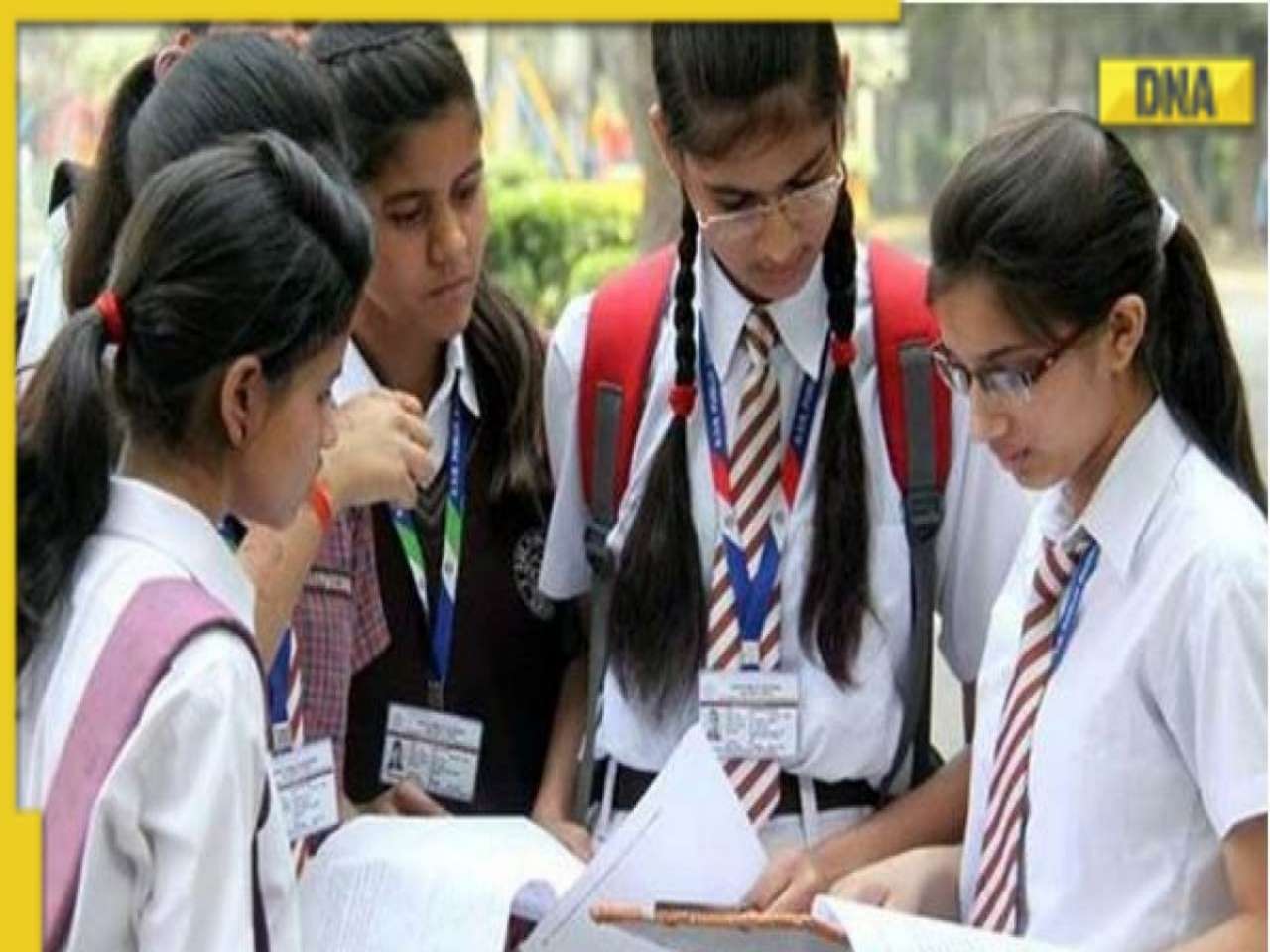

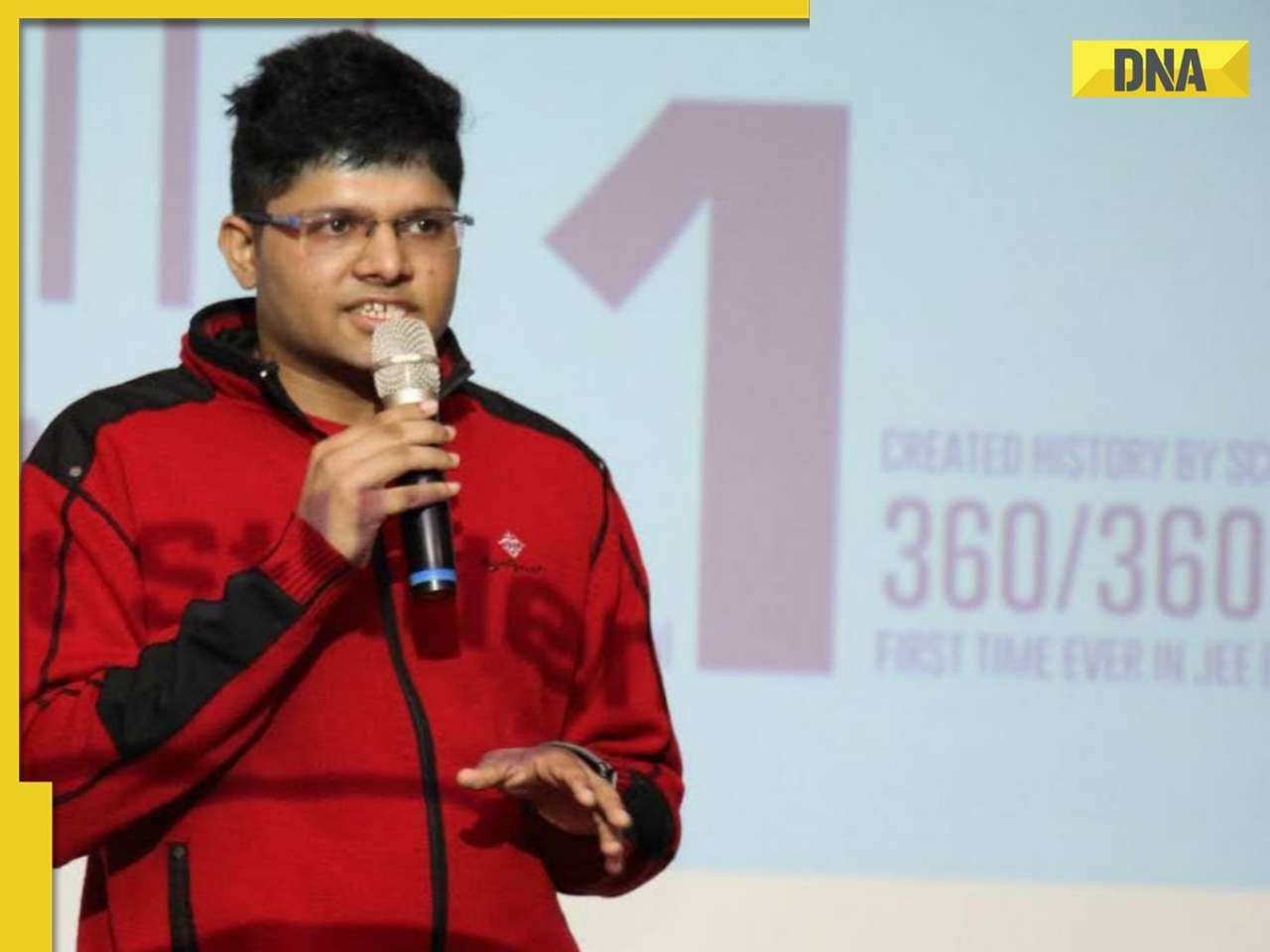

















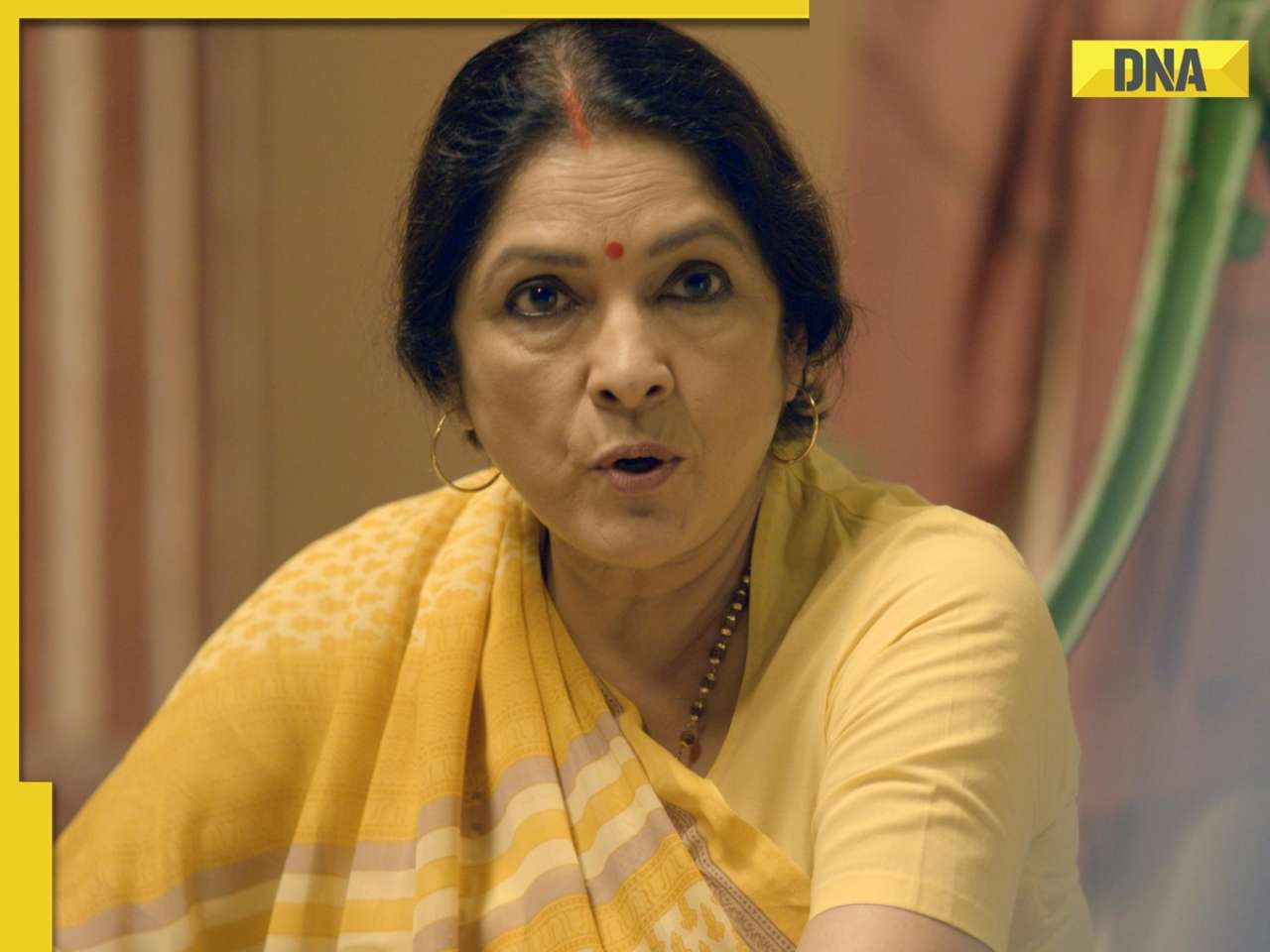


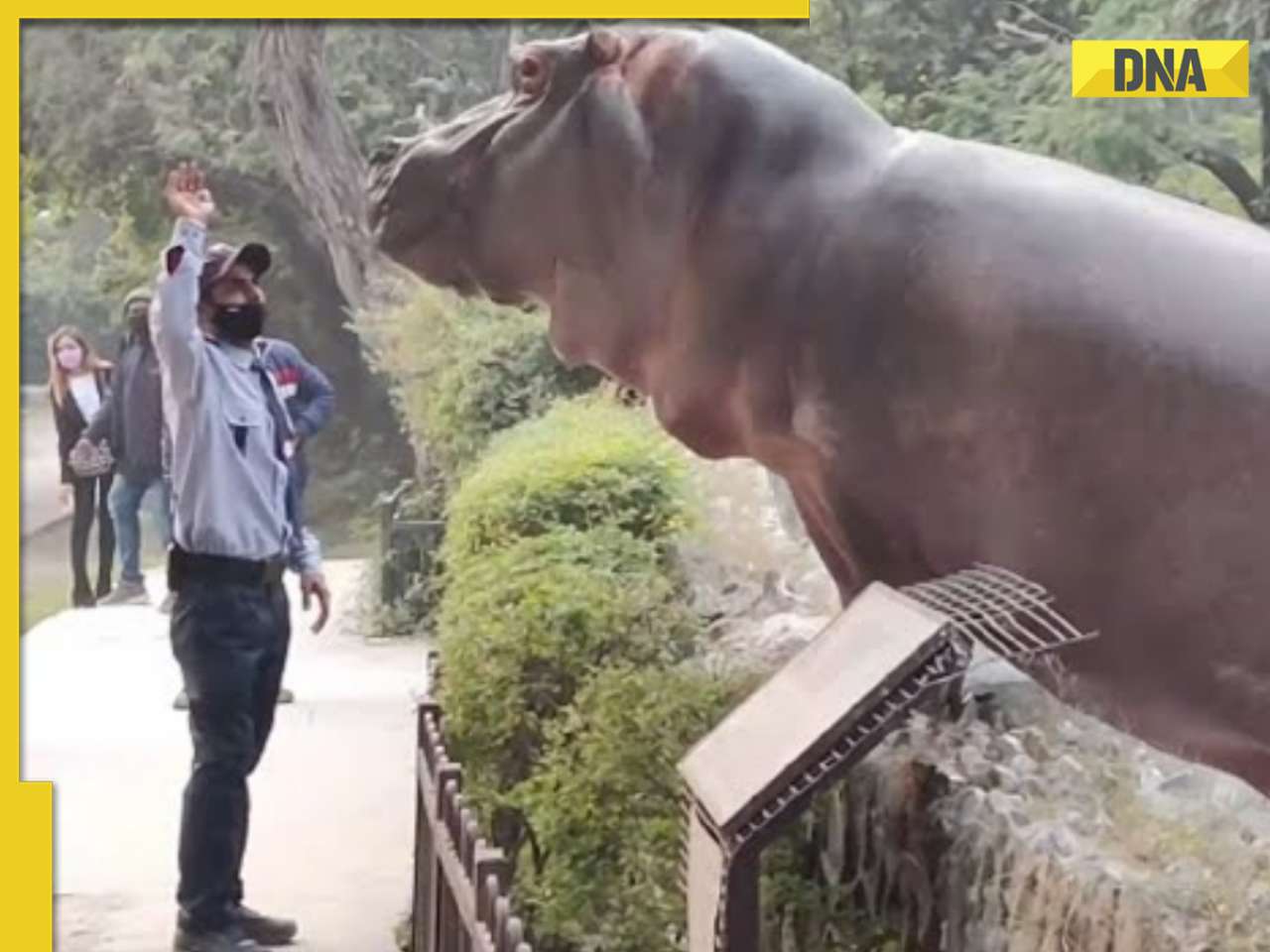






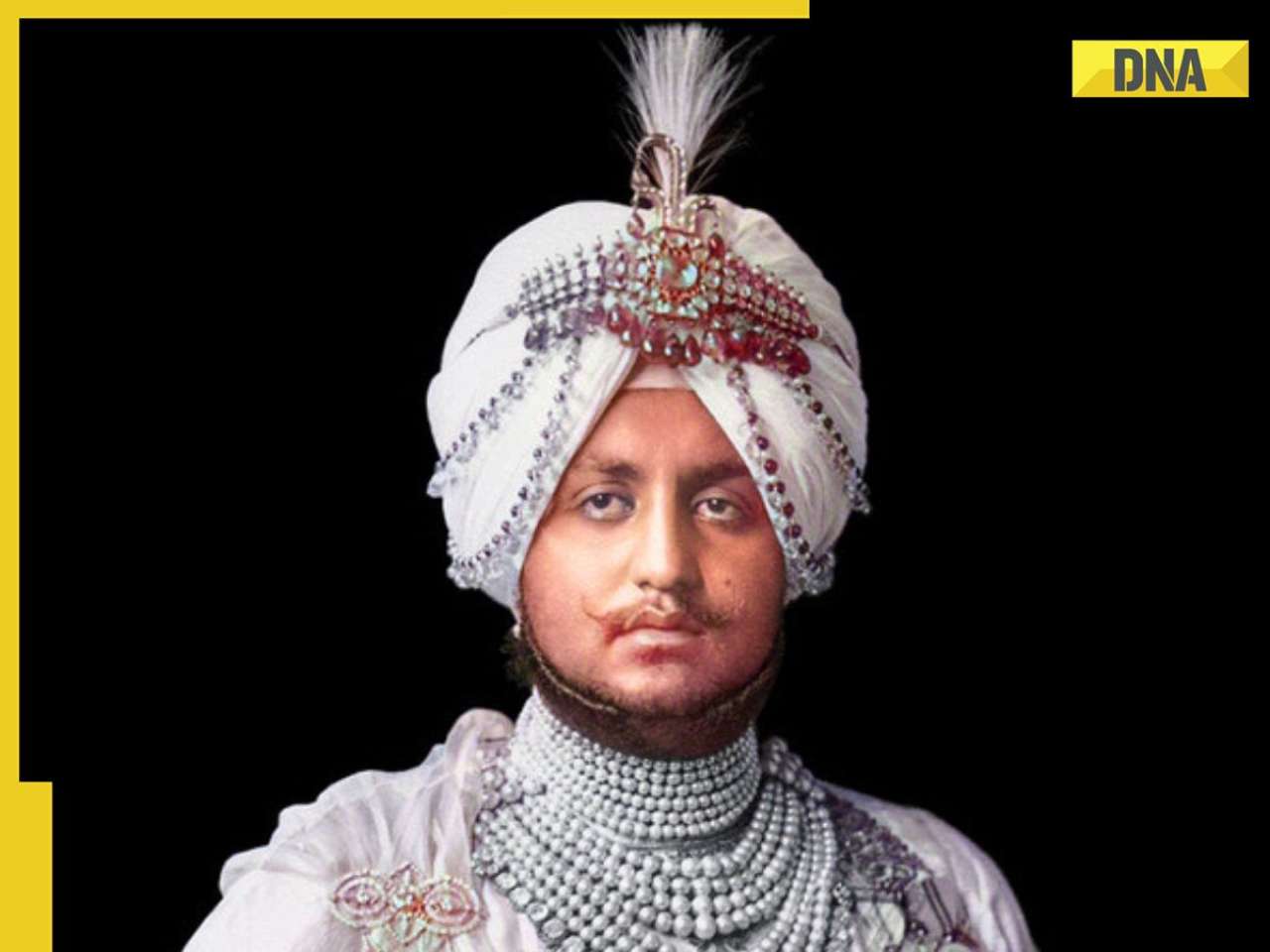


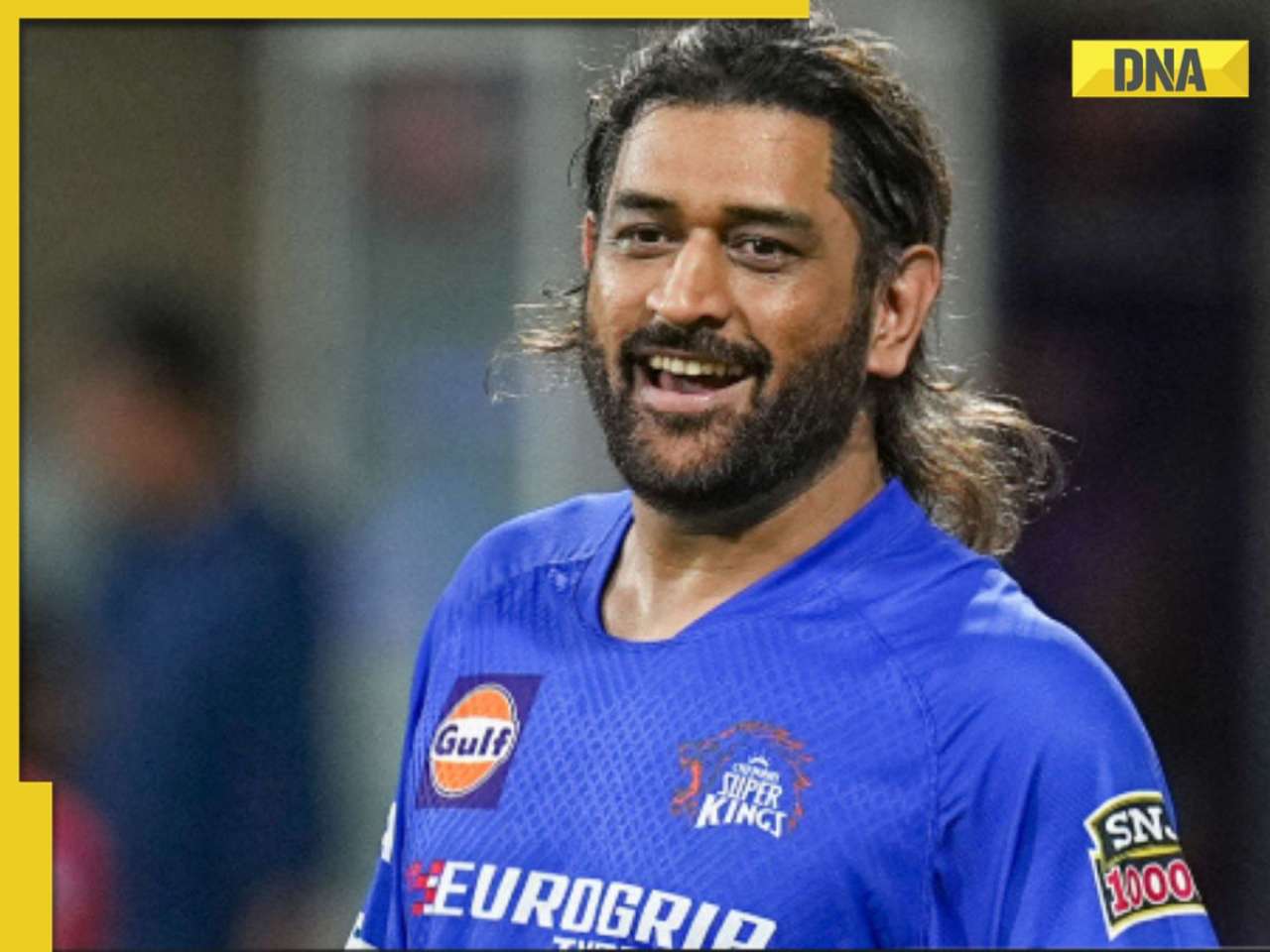


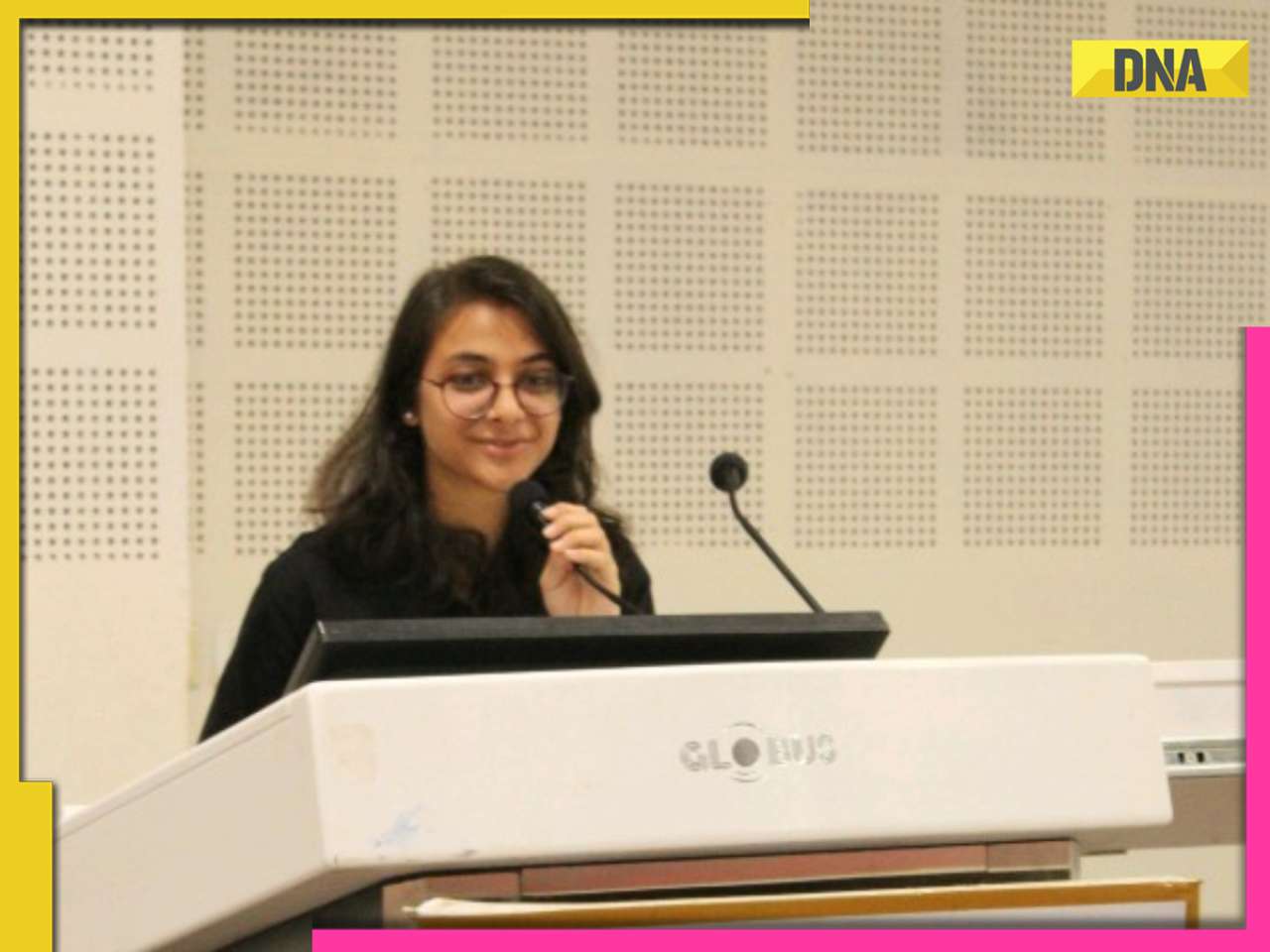


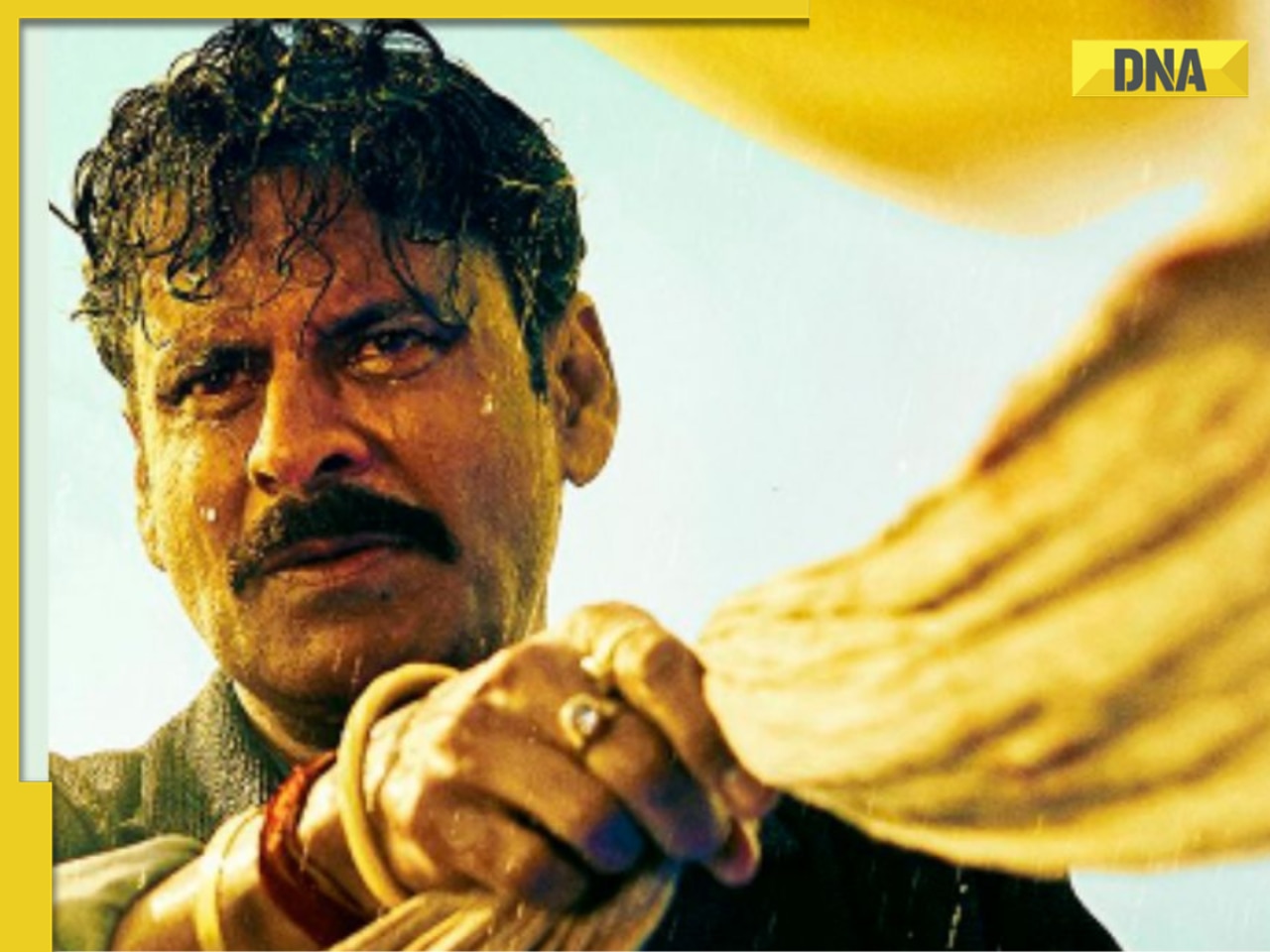






)
)
)
)
)
)